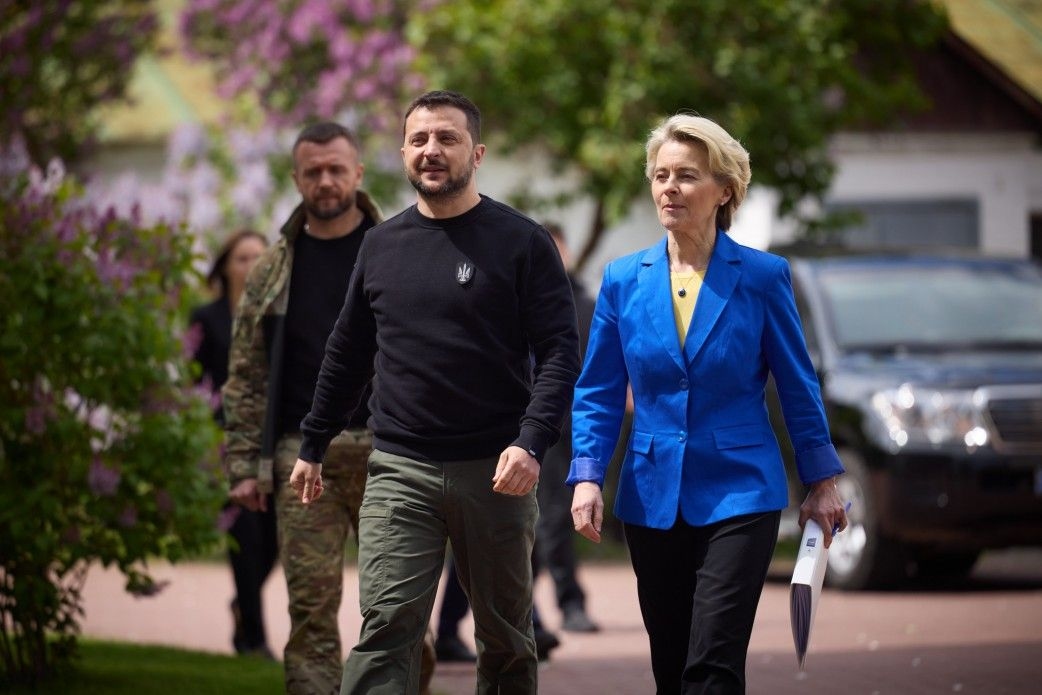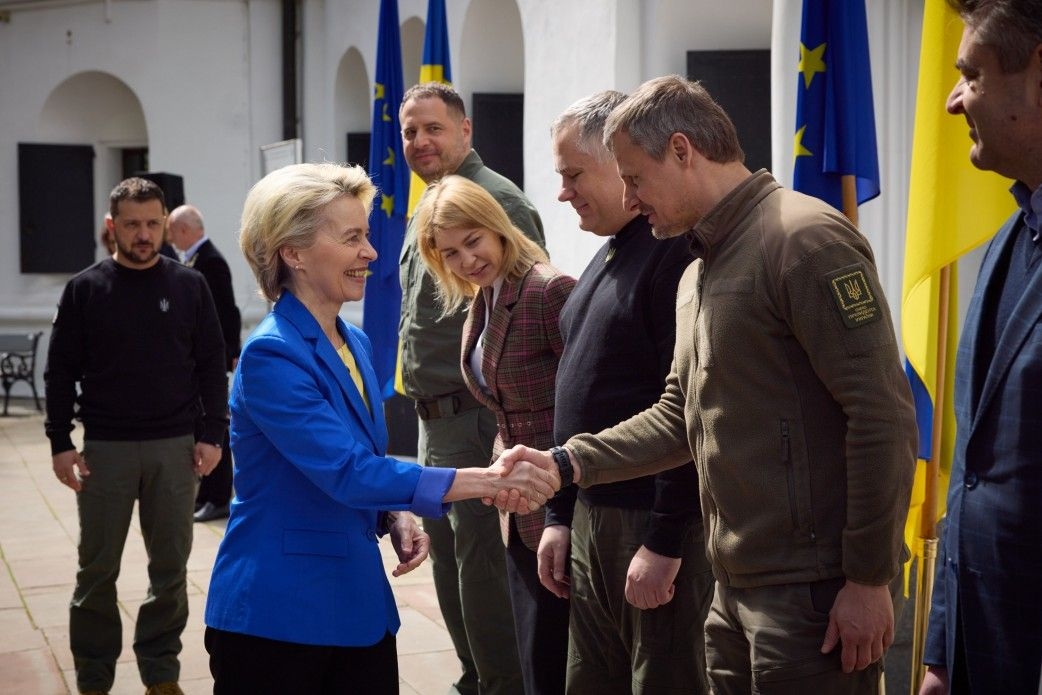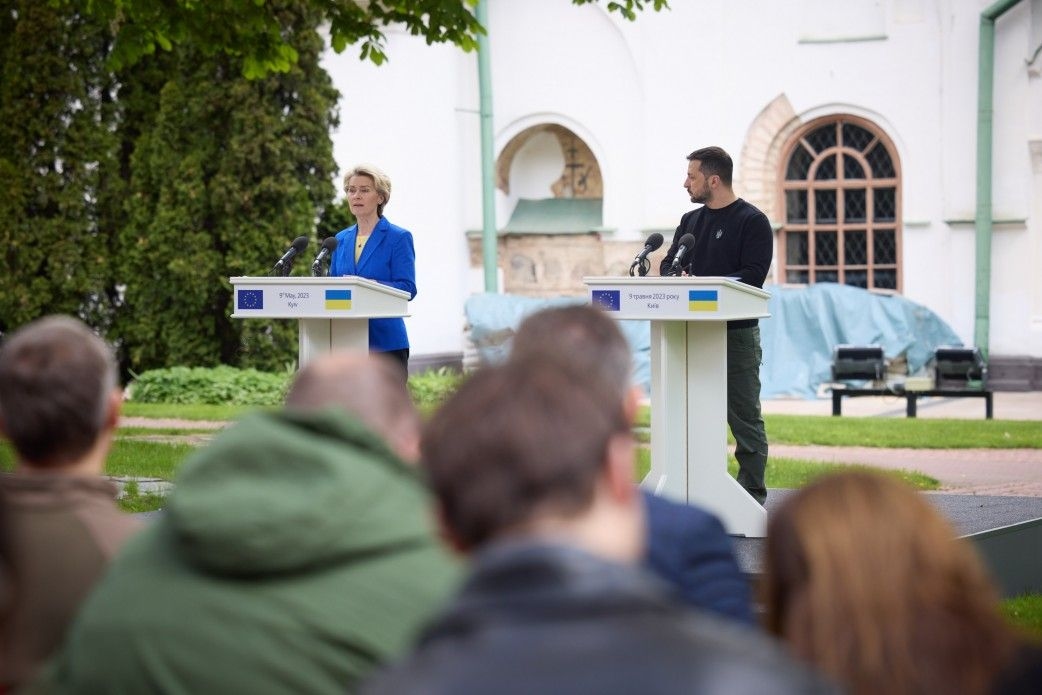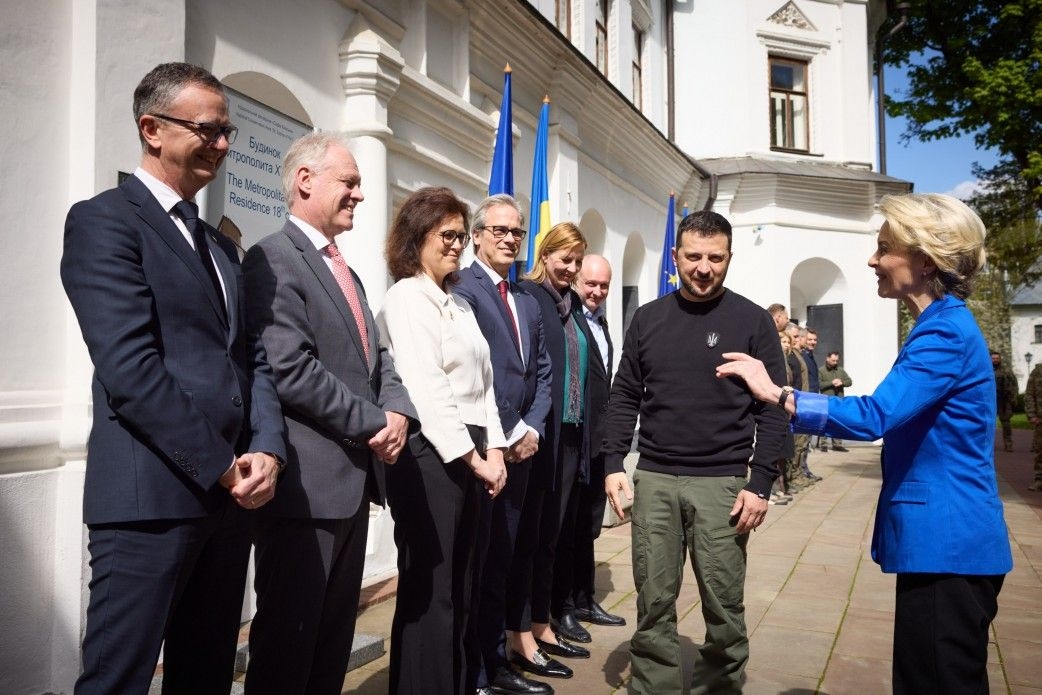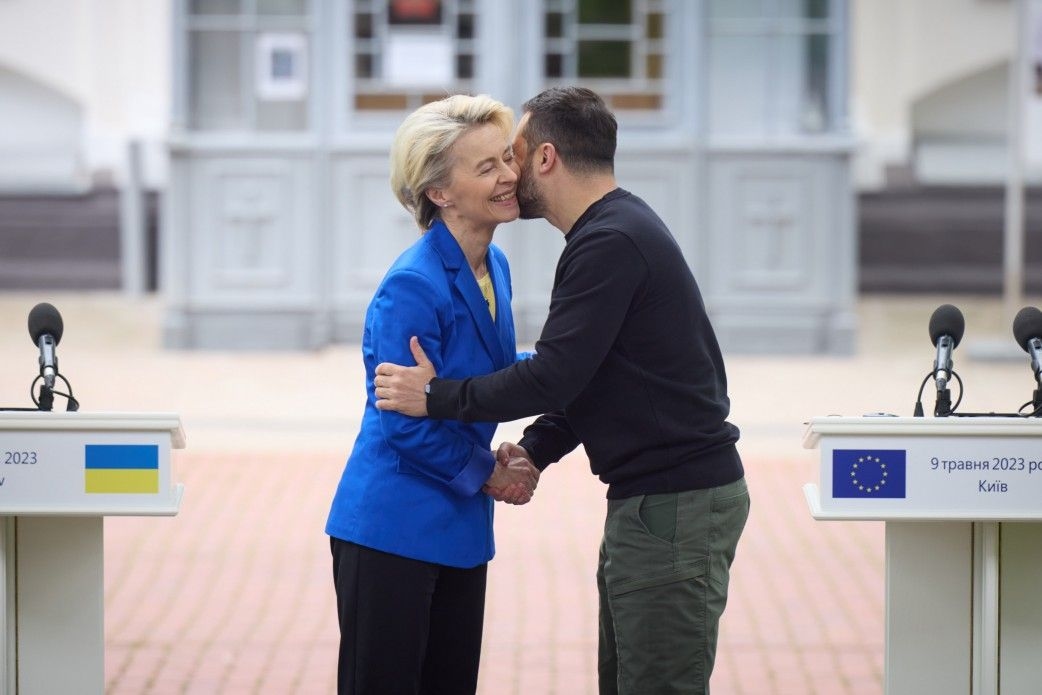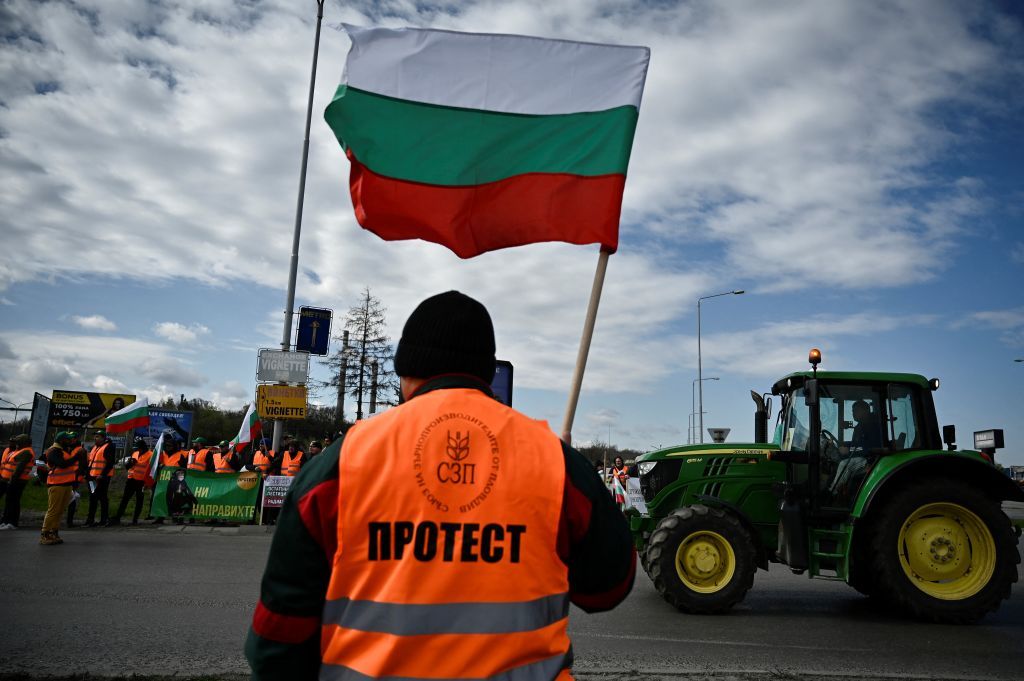EU chief, Zelensky meet in Kyiv on Europe Day
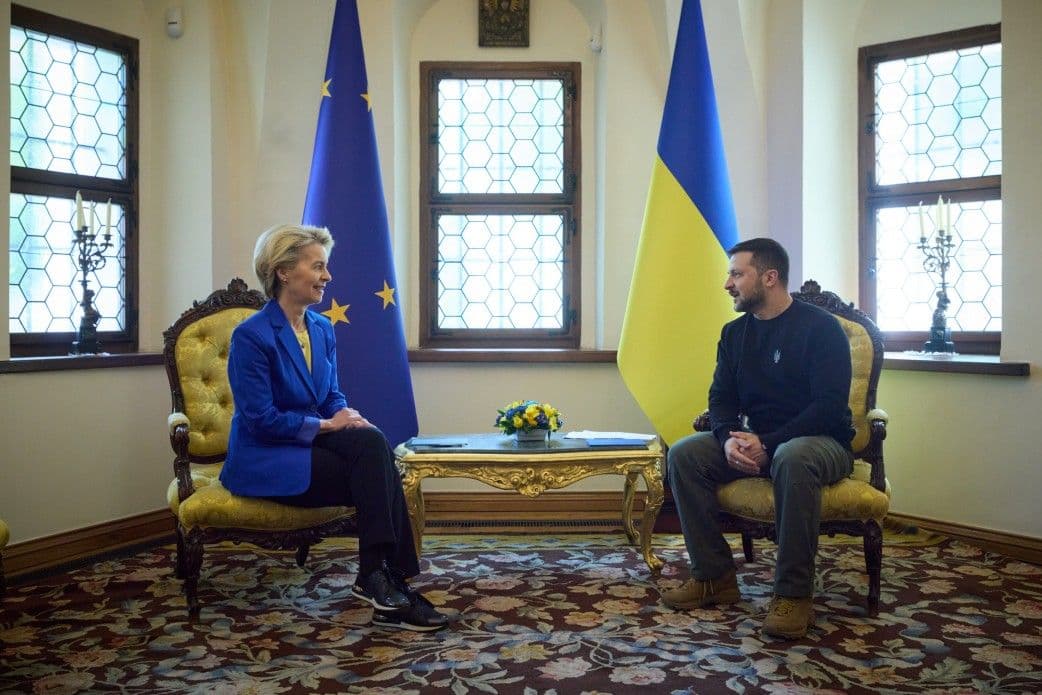
European Commission President Ursula von der Leyen and President Volodymyr Zelensky met in Kyiv on May 9, discussing the EU ammunition supply plan, an upcoming package of sanctions against Russia, and the bloc's ban on Ukrainian food exports.
The two leaders also discussed financial support for Kyiv and the country's progress on its path to EU membership, a day after Zelensky signed a decree on celebrating Europe Day in Ukraine.
At a press conference following the meeting, Zelensky thanked von der Leyen for the EU's readiness to provide Ukraine with one million artillery shells under a 3-step program, which was approved in March and is currently underway.
He also said Ukraine was counting on the 11th package of sanctions against Russia to target the Russian nuclear industry and to be adopted as soon as possible.
European Commission sent EU member states a proposal regarding the sanctions package on May 5, which is being discussed this week.
According to von der Leyen, the package adds more products to the EU transit ban, offers a new tool to resist sanctions circumvention, and proposes a ban on "shadow" entities from Russia and third countries purposefully bypassing the bloc's sanctions.
Ukraine's president expressed hope that the European Union would give a positive interim assessment of the country's progress in fulfilling the EU's "candidate criteria," with an official one expected in October. Von der Leyen said that the "work needs to continue," adding that Ukraine "can count on our support and expertise throughout the process."
At the conference, Zelensky criticized the EU ban on some Ukrainian food products to five EU countries imposed on May 2, calling it "absolutely unacceptable."
"Unfortunately, we have encountered problems where we should have continued to see strong signs of solidarity, in proportion to the threats that exist today — tough and even violent, for wartime, protectionist measures from our neighbors," said Zelensky.
In response, the EU chief promised to create a joint "coordination platform" to make Ukrainian grain exports "fully functioning again." She described the issue as a "challenging situation."
"The immediate priority now is that the grain transit goes seamlessly and at the lowest possible cost outside of Ukraine towards the European Union," Von der Leyen said.

